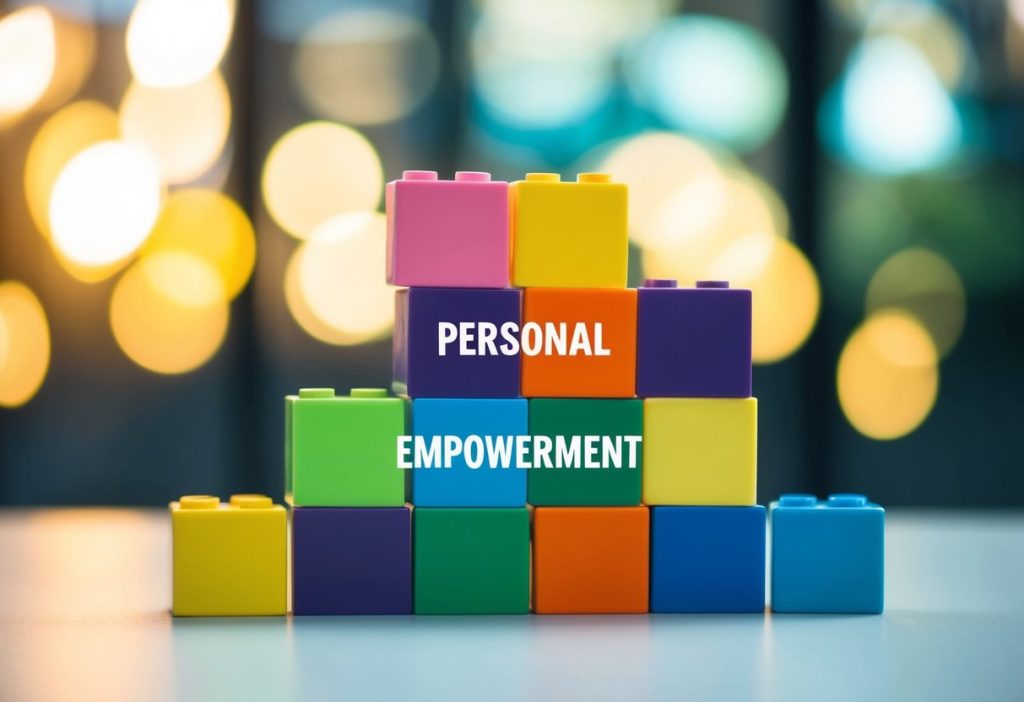Education serves as the foundation for empowerment. It provides individuals with the knowledge and skills needed to navigate their lives with confidence. By equipping minds for a bright future, education fosters positive change in both individuals and their communities.
Empowered individuals are more likely to take on leadership roles and contribute to society in meaningful ways.
Creating an environment that promotes learning and growth builds self-esteem and resilience. Communities thrive when their members are educated and confident, leading to collaboration and innovative solutions to common challenges. This unity fuels the potential for transformative change, inspiring others to follow suit.
As individuals grow in their understanding and capabilities, they can become agents of change. Empowerment through education not only strengthens personal development but also enhances community ties, creating a ripple effect of progress and opportunity.
Fundamentals of Empowerment

Empowerment is essential for personal and community growth. It fosters confidence, motivation, and the ability to set and achieve goals. Understanding its fundamentals can help individuals and groups navigate their paths toward a brighter future.
Understanding Empowerment
Empowerment involves enabling individuals to gain control over their lives. This means making informed choices, building self-esteem, and developing the confidence needed to pursue goals. It also requires recognizing the unique strengths within diverse communities. Empowerment is about more than personal success; it enhances community engagement and collaboration.
Key Elements of Empowerment
Several key elements make up empowerment:
- Confidence: Believing in oneself is critical. It encourages individuals to take risks and make decisions.
- Goal Setting: Establishing clear, achievable goals helps guide actions. It provides direction and purpose.
- Diversity: Embracing differences fosters creativity and innovation. Diverse perspectives improve problem-solving capabilities.
- Motivation: Internal and external motivators drive the desire to succeed. Recognizing these can help sustain empowerment.
These elements collectively contribute to a supportive environment where individuals can thrive.
Role of Education in Empowerment
Education is a central pillar of empowerment. It equips individuals with the knowledge and skills needed to engage actively in their communities. Through education, people learn to think critically, enabling them to make informed decisions.
Education also promotes goal setting and motivates individuals to pursue their dreams. Programs that focus on inclusivity help reduce barriers for diverse populations, enabling equal opportunities for all.
Communities that prioritize education can create a cycle of empowerment. As individuals become educated, they often contribute back to their communities, fostering a culture of support and growth.
Building Personal Empowerment

Personal empowerment involves developing confidence, setting achievable goals, and building resilience. These elements work together to foster mental well-being and promote healthy relationships.
Developing Self-Confidence
Self-confidence is crucial for personal empowerment. It allows individuals to trust their abilities and make decisions with assurance.
To build self-confidence:
- Acknowledge Strengths: Listing personal strengths helps individuals recognize their capabilities.
- Set Small Goals: Achieving them boosts confidence gradually.
- Seek Feedback: Constructive feedback helps in understanding areas for improvement.
Engaging in positive self-talk is essential. Replacing negative thoughts with affirmations can change perspective. Regular practice of these strategies helps in creating a strong self-image.
Goal Setting and Personal Growth
Setting clear, achievable goals is vital for personal growth. Goals provide direction and motivation, allowing individuals to measure their progress effectively.
To set effective goals, one should:
- Use the SMART Criteria: Goals should be Specific, Measurable, Achievable, Relevant, and Time-bound.
- Break Down Larger Goals: Smaller tasks make huge objectives less overwhelming.
- Reflect Regularly: Evaluating progress can reveal insights and inspire ongoing motivation.
This structured approach not only enhances personal growth but also supports mental well-being by fostering a sense of accomplishment.
Overcoming Obstacles and Resilience
Resilience is the ability to bounce back from setbacks. It is an essential part of personal empowerment that helps individuals navigate life’s challenges.
To cultivate resilience:
- Embrace Challenges: Seeing obstacles as opportunities for learning encourages a positive mindset.
- Build a Support Network: Healthy relationships provide emotional support during hard times.
- Practice Mindfulness: Staying present helps in managing stress and maintaining perspective.
These practices enable individuals to develop a robust coping strategy, enhancing their ability to overcome difficulties.
Empowerment through Leadership and Community
Effective leadership and active community engagement are key to fostering empowerment. Leaders inspire action and nurture the skills necessary for individuals to thrive. In addition, community collaboration enhances bonds and encourages collective growth.
Cultivating Leadership Skills
Leadership skills are essential in empowering individuals and communities. Leaders set a vision that motivates others. They serve as role models, showcasing behaviors that inspire others to follow.
In effective leadership programs, individuals learn key skills like communication, decision-making, and problem-solving. Workshops and mentoring can create opportunities for growth. These programs also foster confidence and encourage participants to take initiative.
Furthermore, leaders who encourage collaboration build a culture of trust and respect. This environment allows everyone to voice their ideas, leading to innovative solutions. Strong leadership ultimately paves the way for a brighter future.
Community Engagement and Collaboration
Community involvement plays a crucial role in empowerment. When individuals engage in volunteer work, they develop a sense of ownership and purpose. This promotes teamwork and strengthens community ties.
Collaboration among community members enhances problem-solving efforts. Sharing resources, skills, and knowledge boosts collective efficacy. It allows diverse perspectives to shape initiatives that address local needs.
Organizations can support this by creating platforms for dialogue. Community meetings, workshops, and projects that promote active participation allow voices to be heard. By bringing together various groups, communities can inspire action and foster a shared sense of responsibility.
Continued Empowerment: Lifelong Learning and Adaptability
Lifelong learning and adaptability are essential for personal and professional growth. They equip individuals with the skills needed to navigate an ever-changing world. A positive mindset helps foster continuous learning, while digital literacy becomes increasingly important in today’s technology-driven society.
Importance of Continuous Learning
Continuous learning is vital for staying relevant in various fields. It encourages individuals to develop new skills, adapt to advancements, and enhance their knowledge base. This ongoing process helps in building resilience and confidence.
Key aspects of continuous learning include:
- Quality Education: Access to quality education provides a solid foundation for ongoing growth.
- Positive Mindset: A willingness to learn motivates individuals to seek new opportunities.
- Digital Literacy: Familiarity with technology aids in acquiring new skills efficiently.
Individuals who prioritize lifelong learning can respond better to changing demands in the workplace, ensuring their career longevity.
Adapting to Change: Skills for the Future
Adaptability is a crucial skill in an unpredictable world. It involves being open to new ideas and adjusting strategies as circumstances change.
Individuals can thrive by cultivating important skills such as:
- Critical Thinking: This skill enables effective problem-solving and decision-making.
- Collaboration: Working well with others enhances shared success.
- Leadership: Developing leadership skills empowers individuals to guide others through change.
With a strong focus on these skills, individuals position themselves for success. They are more prepared to tackle challenges and seize opportunities in their personal and professional lives.



